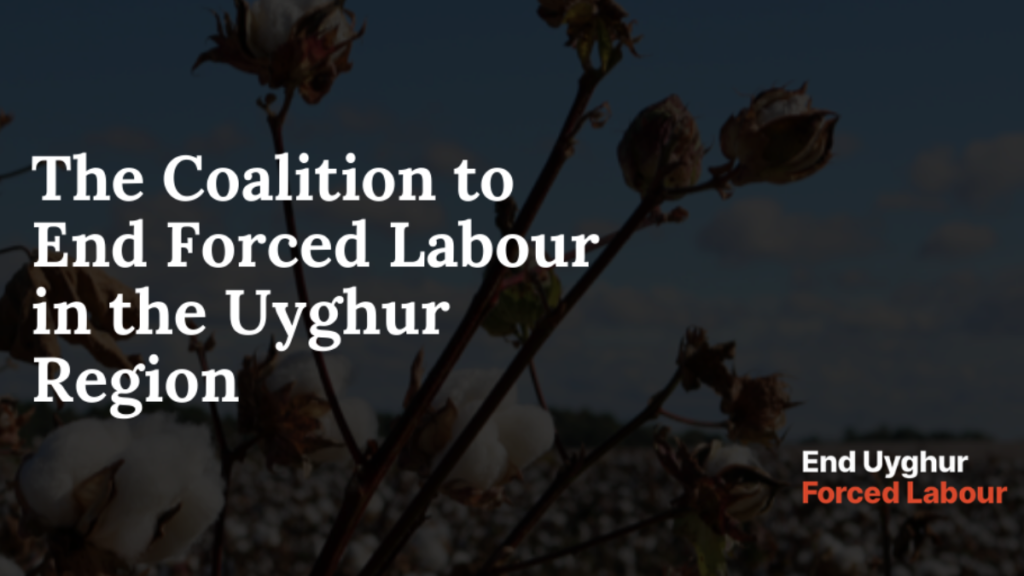Seafood, Aluminium, and PVC face new scrutiny under Uyghur Forced Labor Prevention Act enforcement efforts

July 12, 2024
[Below is a statement by the Coalition to End Forced Labour in the Uyghur Region, for which the Uyghur Human Rights Project is a Steering Committee Member]
The Coalition to End Forced Labour in the Uyghur Region welcomes the addition of three high-priority sectors – seafood, aluminium, and polyvinyl chloride (PVC) – for Uyghur Forced Labor Prevention Act (UFLPA) enforcement. The additions were announced in the newly published 2024 Strategy to Prevent the Importation of Goods Mined, Produced, or Manufactured with Forced Labor in the People’s Republic of China by the Forced Labor Enforcement Task Force. Companies in the three industries must fully trace their entire supply chains and ensure any links to Uyghur forced labour are immediately addressed.
“The three new high-priority sectors have been known to be at high risk of using Uyghur forced labour. Companies operating in those sectors should already be doing their due diligence to identify their exposure to the Uyghur Region. Those that claim to be unprepared for UFLPA enforcement actions have either not been paying attention or willfully neglecting their legal and moral responsibility,” said Elfidar Iltebir, President of the Uyghur American Association.
The risk of exposure to Uyghur forced labour in the three sectors has been well documented in credible investigative and academic reports:
- Aluminium: The Uyghur Region is China’s top aluminium-producing region and accounts for 9-12% of the world’s global aluminium production, more than any country outside China.
- Seafood: An investigation by the Outlaw Ocean Project found that since 2018, more than a thousand Uyghur people have been transferred from the Uyghur Region to work in forced labour conditions in at least ten major seafood processing hubs thousands of miles away in Shandong, China.
- Polyvinyl chloride (PVC): PVC has a wide range of applications and is a key material in a variety of products such as flooring materials and protective clothing and accessories. More than 10% of the world’s PVC is manufactured in the Uyghur Region and is tainted with Uyghur forced labour. Research has found that the two largest PVC manufacturers in China are active participants in the Chinese government’s labour transfer scheme.
Companies in these sectors could face a variety of enforcement actions, such as increased scrutiny, inclusion on the UFLPA Entity List, export limitations, economic sanctions, and visa restrictions.
In a clear warning to companies not to focus solely on these sectors, the Department of Homeland Security also suggests that importers focus their due diligence efforts on supply chains that intersect with these sectors. This emphasises the need for companies in all industries to immediately fully trace their supply chains and address any links to the Uyghur Region rather than wait for UFLPA enforcement efforts in specific sectors or against certain entities.
“Nobody should profit from Uyghur forced labour. The addition of new priority sectors is a positive and necessary step in the fight to end Uyghur forced labour. We are also pleased to hear of the focus on expanding the UFLPA Entity List – a robust Entity List will help to ensure the UFLPA is enforced to the fullest extent possible,” said Jewher Ilham, Forced Labor Project Coordinator at the Worker Rights Consortium.
The UFLPA alone cannot fully address Uyghur forced labour in supply chains. A global response is needed to address the wide-scale, state-imposed forced labour facing the Uyghur people. Governments around the world should rapidly adopt and robustly enforce import control legislation banning imports of goods made with forced labour. A mix of regulatory tools are needed to ensure there is no market for goods made with Uyghur forced labour anywhere in the world.
